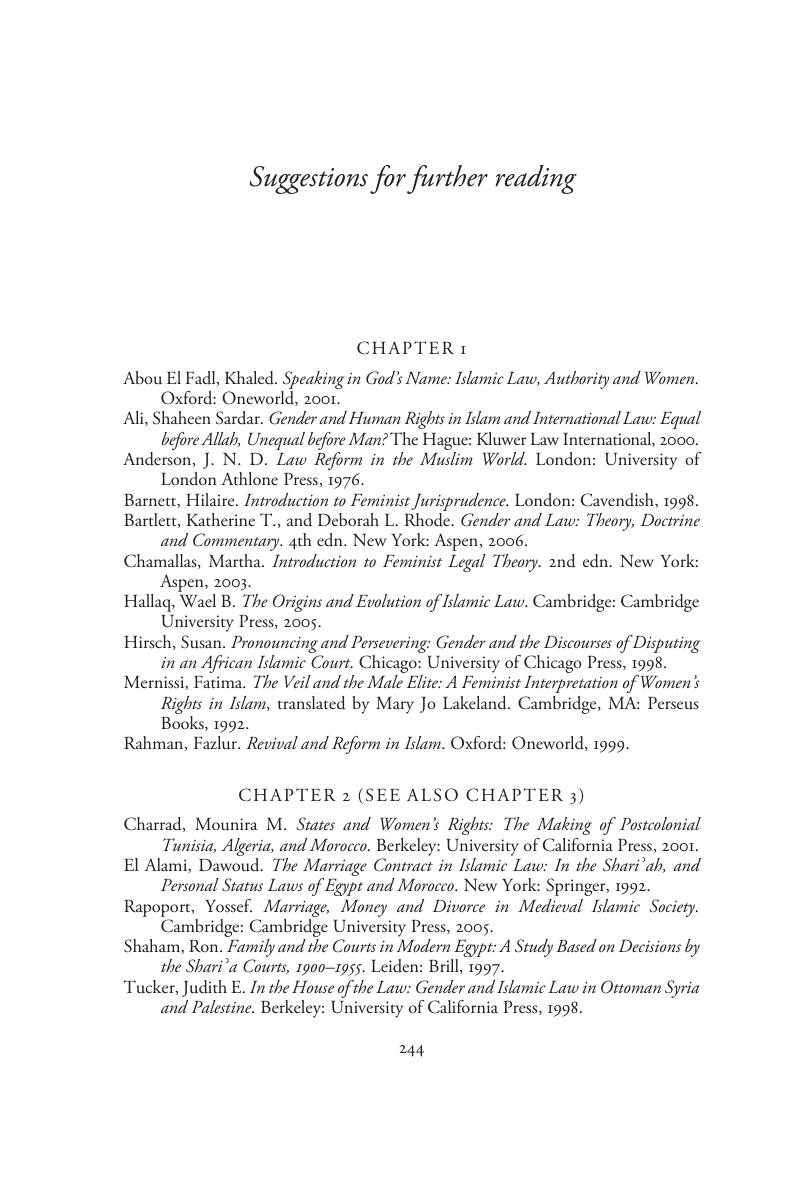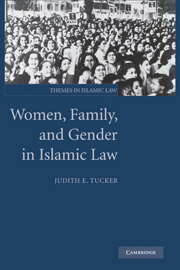Book contents
- Frontmatter
- Contents
- Acknowledgements
- Maps
- 1 Introduction
- 2 Woman as wife and man as husband: making the marital bargain
- 3 Woman and man as divorced: asserting rights
- 4 Woman and man as legal subjects: managing and testifying
- 5 Woman and man in gendered space: submitting
- 6 Conclusion
- Glossary
- Bibliography
- Suggestions for further reading
- Index
- References
Suggestions for further reading
Published online by Cambridge University Press: 05 June 2012
- Frontmatter
- Contents
- Acknowledgements
- Maps
- 1 Introduction
- 2 Woman as wife and man as husband: making the marital bargain
- 3 Woman and man as divorced: asserting rights
- 4 Woman and man as legal subjects: managing and testifying
- 5 Woman and man in gendered space: submitting
- 6 Conclusion
- Glossary
- Bibliography
- Suggestions for further reading
- Index
- References
Summary

- Type
- Chapter
- Information
- Women, Family, and Gender in Islamic Law , pp. 244 - 246Publisher: Cambridge University PressPrint publication year: 2008



